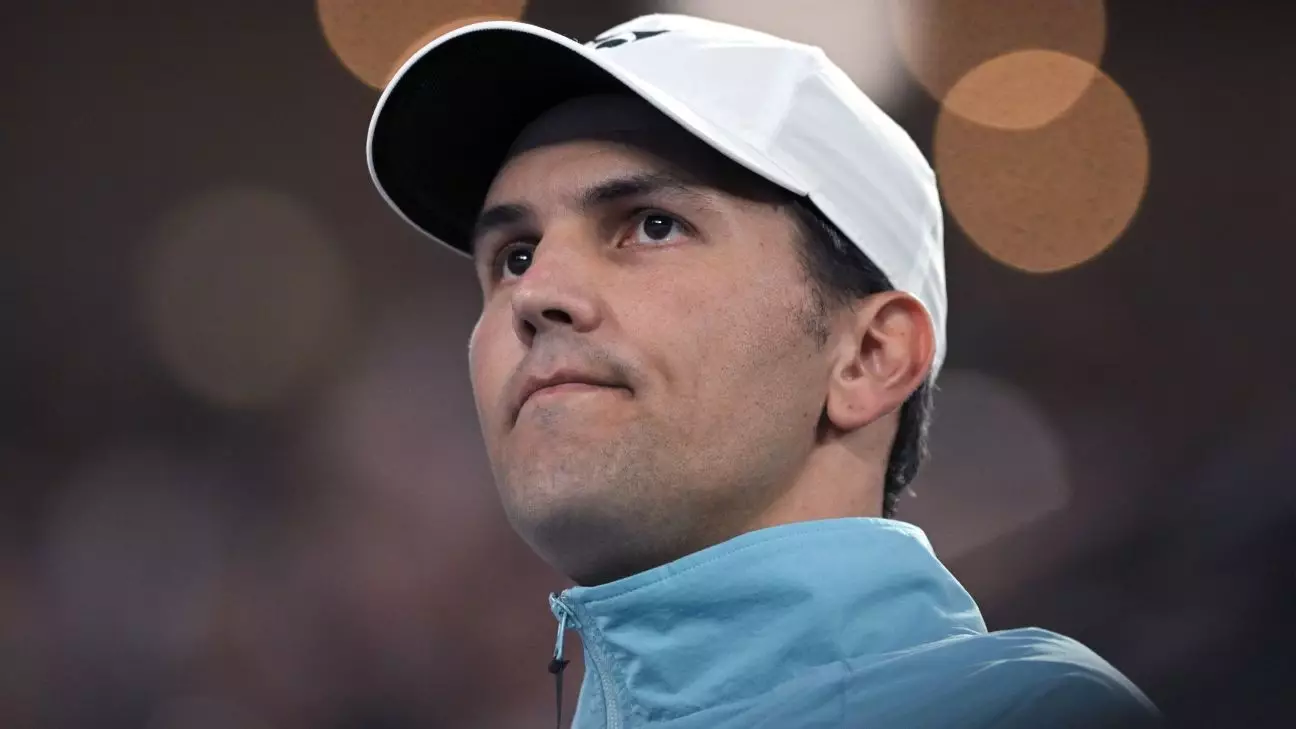The recent developments regarding Elena Rybakina’s former coach, Stefano Vukov, have thrown a spotlight on the intricate relationship between athletes and their coaching staff. After a comprehensive investigation, the Women’s Tennis Association (WTA) confirmed that Vukov’s suspension, initially set as a provisional measure, would continue indefinitely. The details surrounding the reason for this action remain shrouded in confidentiality, leaving much speculation in the wake of the announcement. Vukov has consistently denied any misdeeds, yet the cloud of suspicion lingers over him, impacting both his career and Rybakina’s trajectory.
Rybakina’s stance throughout this turbulence is particularly noteworthy. As a player who achieved remarkable success, including lifting the Wimbledon trophy in 2022, her testimony carries weight. Rybakina’s declaration that Vukov “never mistreated me” reveals a strong loyalty and trust in her previous coach. This public support stands in stark contrast to the disciplinary actions levied by the WTA, which have resulted in a complicated coaching dynamic for the young athlete. The implications of her statement are profound, as they may influence public perception and the implications for Vukov’s professional future.
The nature of professional athlete-coach relationships is rarely straightforward. Rybakina’s decision to initially part ways with Vukov before moving on to embrace the guidance of tennis legend Goran Ivanisevic illustrates this complexity. Yet, with Vukov’s provisional suspension in effect, Rybakina’s emotional and professional stability appears jeopardized. The reality that Rybakina announced Vukov’s return to her team while being aware of the suspension brings to light the challenges athletes face in navigating such conflicts, both personally and publicly.
With the investigation’s conclusion resulting in an ongoing suspension, the WTA’s commitment to maintaining a secure environment for its players is under scrutiny. The governing body emphasized that all actions taken are in adherence to its code of conduct, yet the lack of transparency regarding Vukov’s suspension raises questions. While it is commendable that the WTA is committed to confidentiality, this can also lead to ambiguity and distrust among players and coaches alike. Such dynamics may hinder the developmental journey of young athletes, who must feel reassured that they are supported by an impartial organization.
As the tennis season progresses, the unfolding narrative surrounding Rybakina and Vukov will be critical in shaping the contours of their respective careers. Should the circumstances change, renewed clarity could facilitate a resolution for Rybakina and possibly restore Vukov’s status within the tennis community. Ultimately, this saga resonates deeply within the broader context of professional sports, where the intersecting interests of integrity, loyalty, and ambition continually shape the paths of athletes and coaches alike. The world will be watching closely to see how this situation resolves, as it stands as a case study for the delicate balance inherent in competitive sports.

